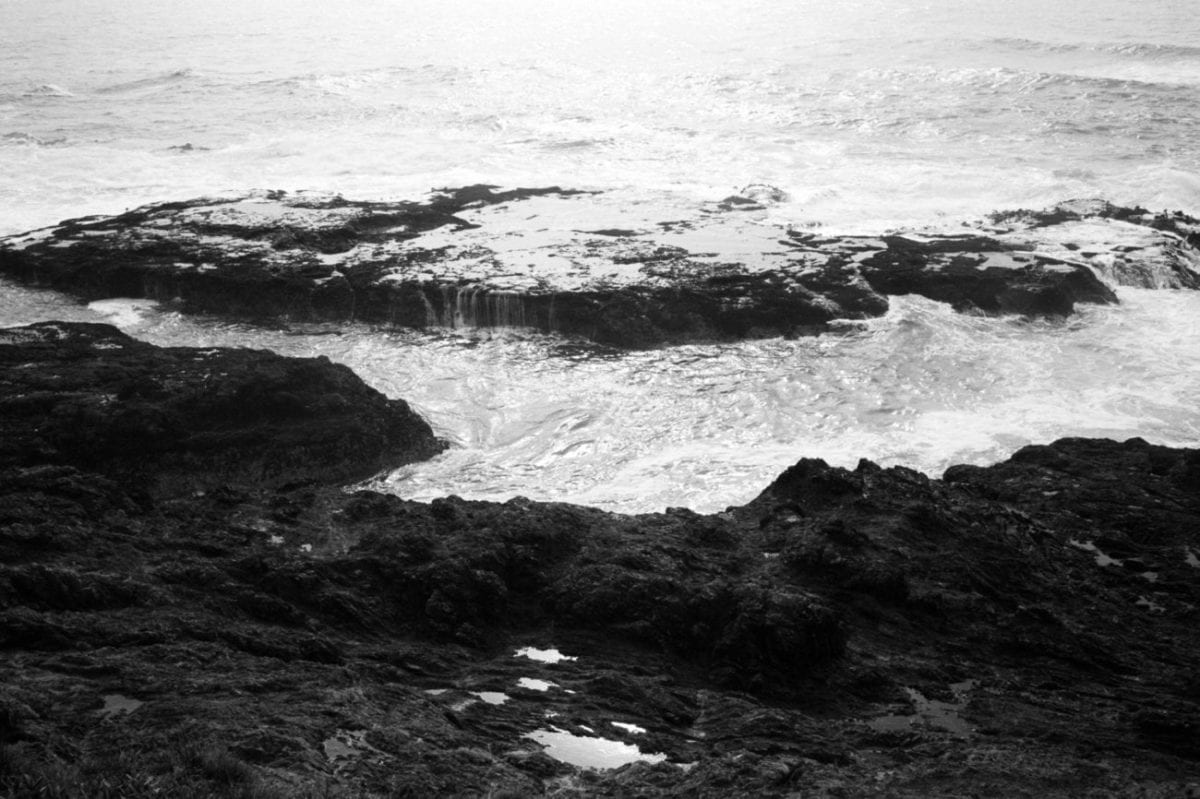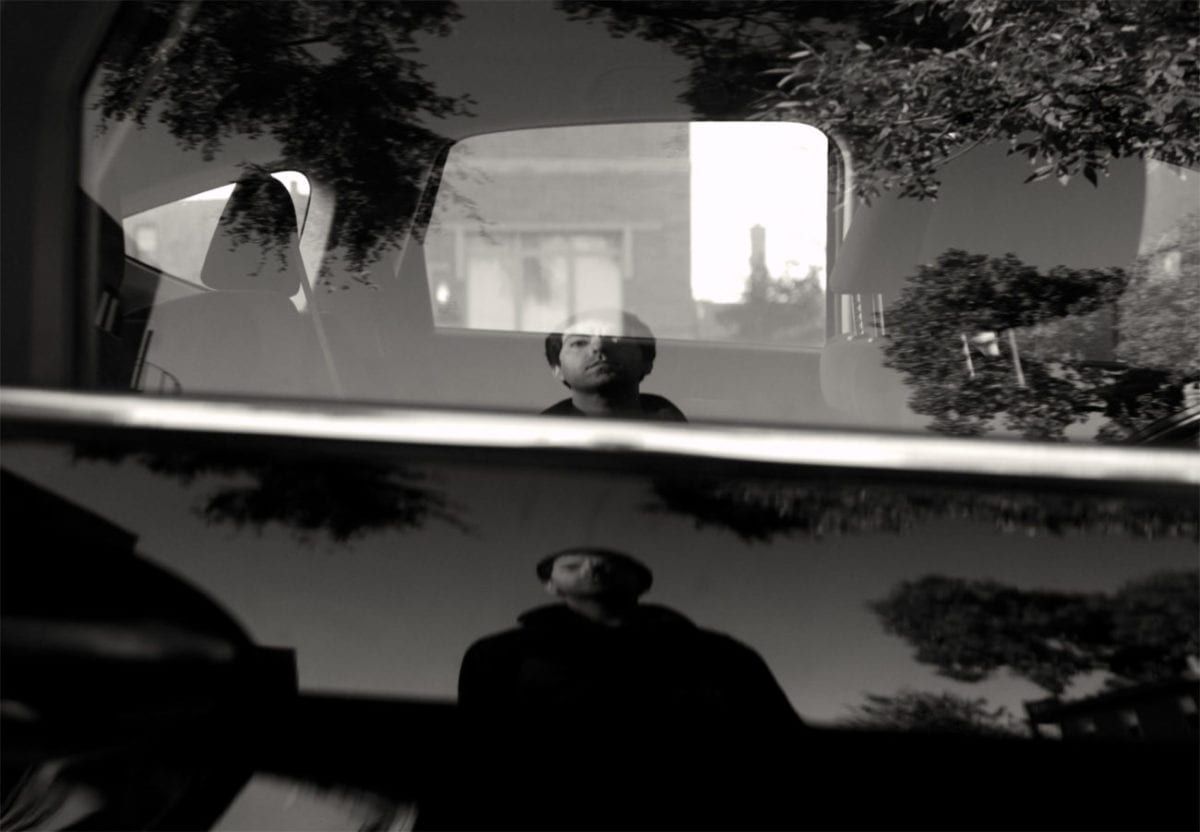
An accomplished musician and protean artist, Chicago-based producer and guitarist Michael Vallera crosses his time with a perceptive ear and unparalleled vision. Profound and delicate, his music spans a vibrant palette of sonics, from the dysphoric torpor specific to the new millenium to the boundless scope of possibilities generated by new age virtualities.
His most recent piece, the dazzling and thoughtful ‘Vivid Flu‘, mirrors the complexity of today’s multi-vectorial communication systems and endless interfacing that so often come out on existential vacuums and deep identity crisis. Firmly anchored in this era of uncertainty, and looking at this exacting reality through its own magnifying glass, Vallera’s work wholly deserved a new scan.
Interview by Baptiste Girou
"It has been a very difficult time, but simultaneously has reaffirmed my own work as a means to understand his passing. At this moment it has made me return to the guitar in a way that is more pure."
I know you’ve lost your father recently and may (or not) want to talk about that. I was wondering though: as a sheer expression of one’s feelings and inner reality, how does it inflect your craft? Do you feel it has affected the way you produce music; has it changed the colours in your palette?
My father was a close friend, and someone who was pivotal in encouraging my musical practice from a very young age. He had been sick for quite a long time, but even in that context his death was extremely sudden. He was also a musician, and shared an incredible love and understanding of music with my brothers and myself.
It has been a very difficult time, but simultaneously has reaffirmed my own work as a means to understand his passing. At this moment it has made me return to the guitar in a way that is more pure, and most of the writing I have been doing over the last month has involved just the guitar and amplifier, and working through different cycles of melodic progressions against moments that are more discordant.
Your most recent release was the absolutely wonderful ‘Vivid Flu’ for ambient-focused label Denovali. Please tell us more about it? What’s been the big concept/main idea behind this record?
Thank you so much for your kind words about the album. That record was about establishing a very specific mood using as few elements as I possibly could. The majority of the sounds are guitar based but I also made use of piano and manipulated drum machine. The record was really a result of the process of recording at Electrical Audio and letting the room dictate the character of the sounds.
As far as concept goes, the title was created through cut up exercises, and at first was simply a phrase that I thought was interesting and also visually looked concise and appropriate. As time passed and the tracks became finalized, the title really developed an ownership over the temperament of the whole record. I think the end result speaks to a very internal environment, something for individual listening and reflecting.
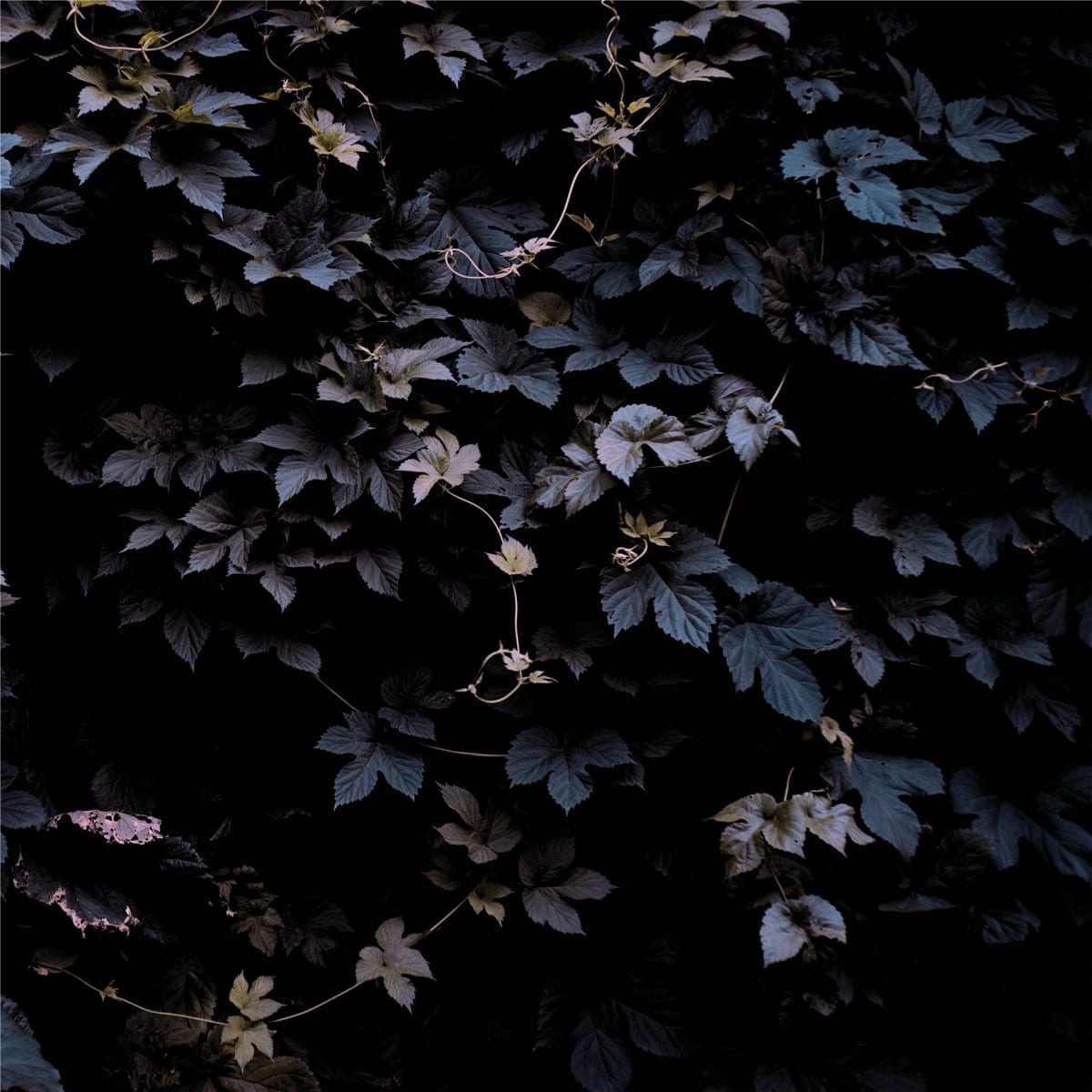
"It addresses a kind of haze or disconnect that I feel is present in the information we consume on a daily basis, where things can feel both hyper-present and obscured."
What is that ‘Vivid Flu’?
I’ve started to think about that title as a descriptor of the way one might physically or psychologically interface with different structures of communication. It addresses a kind of haze or disconnect that I feel is present in the information we consume on a daily basis, where things can feel both hyper-present and obscured.
We premiered the title-track off this outstanding album earlier this year and I must say it’s ranking high in my list of favorites of 2017. It’s an incredibly beautiful and heart-rending cut, and I guess there’s as many answers to the question ‘what does this track inspire you’ as there’s listeners… So my question would rather be, what does it mean to you? What was your mindset when you wrote/composed it?
The title track actually began almost a year before the record as a small melodic fragment, which is the phrase you hear at the intro that slowly builds throughout the duration of the song. I was listening to a lot of the early 70’s Popol Vuh records at the time, and was trying to capture a similar sense of weight and meditative power. I wanted the title track to be minimal, but hopefully allude to something larger outside of itself, or have the ability to adhere onto the space of the listener in a significant way.
In another interview you spoke of the constant influx of images and the multiple facets of our reality. How do you find your place in this maelstrom of contradictory information?
In all honesty it’s something I struggle with constantly. There is a fine line between wanting to stay informed and share meaningful or pertinent information, and simply proselytizing. I suppose trying to find small methods or exercises to become more selfless is important for all of us right now.
How does your art fit in there? Does it even fit?
It’s difficult to know where exactly my art, or any art fits at this moment. There are long standing structures in place for both music and visual art regarding how they are showcased and valued, and I typically find myself frustrated in navigating those systems. The only goal right now is to keep making work as long as I still feel compelled to, and hopefully those interested in it will be able to access the work through live performance or home listening.
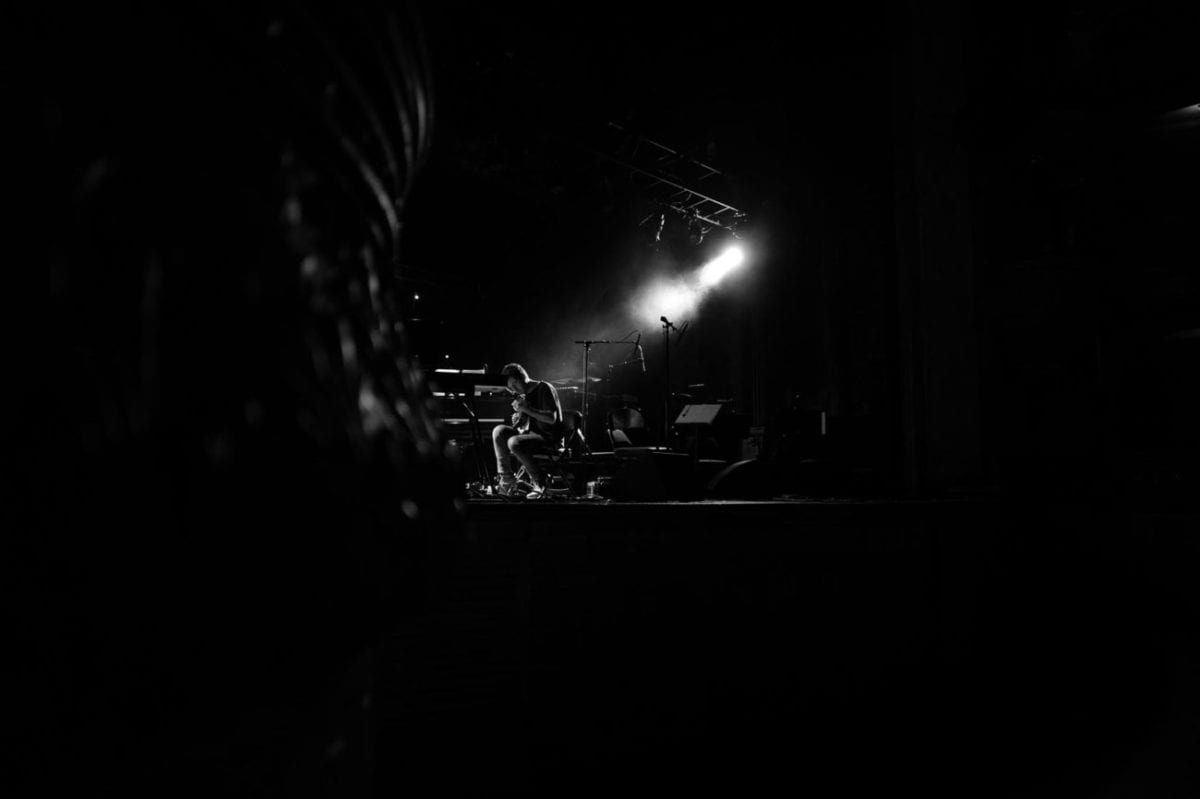
"I play the guitar nearly every day, and try to stay regimented in building the vocabulary I have with the instrument."
In a way, electronic music is a genre that defies the notion of instrumental use, bypassing all classical or accepted “rules” to reinvent a whole new lexicon and sound grammar…
Absolutely. I think what initially interested me in a lot of electronic music was the way in which artists repurposed sounds to fit within the agenda of a given track or album. At this point, with the proliferation of hardware and software options available to musicians, it’s really endless in terms of what you can create. However, that situation also makes it more important to retain a sense of what the idea is, even if it ends up being unsuccessful in its execution. It takes a real effort to make something that doesn’t just sound like gear, but instead an actual expression that can be associated with an artist and their particular sensibilities.
How do you generally proceed when recording? Do you enter the studio with a melody in mind and a certain idea of how the track will turn yet, or do you prefer to jam and let the instinct get the upper hand?
I play the guitar nearly every day, and try to stay regimented in building the vocabulary I have with the instrument. I’ll spend a few months slowly crafting small arrangements and chord progressions, and later on will begin to combine those and see what works and what doesn’t.
When things get to that stage I’ll start going through field recordings and other non-guitar material to round out the tracks. By the time those compositions are ready for more serious processing in a proper studio I will book time and record the final guitar tracks over a few days. The whole situation always feels like making a collage, but it’s a way of working I have come to enjoy and become comfortable with over the years.
What’s been your last aesthetic shock and why?
Very recently I played in an ensemble with the members of Chicago-based trio Haptic, and musician Morgan Evans-Weiler also joined us. His solo violin set that opened the evening was probably the best performance I’ve seen this year.
It was an unamplified piece that lasted about 35 minutes and was so incredibly quiet and repetitive, it really commanded the entire venue and was a much-needed reminder of the power of quiet sounds and how to utilize dynamic range to direct the focus of an audience. It was a real pleasure to perform beside him in the ensemble later that evening.
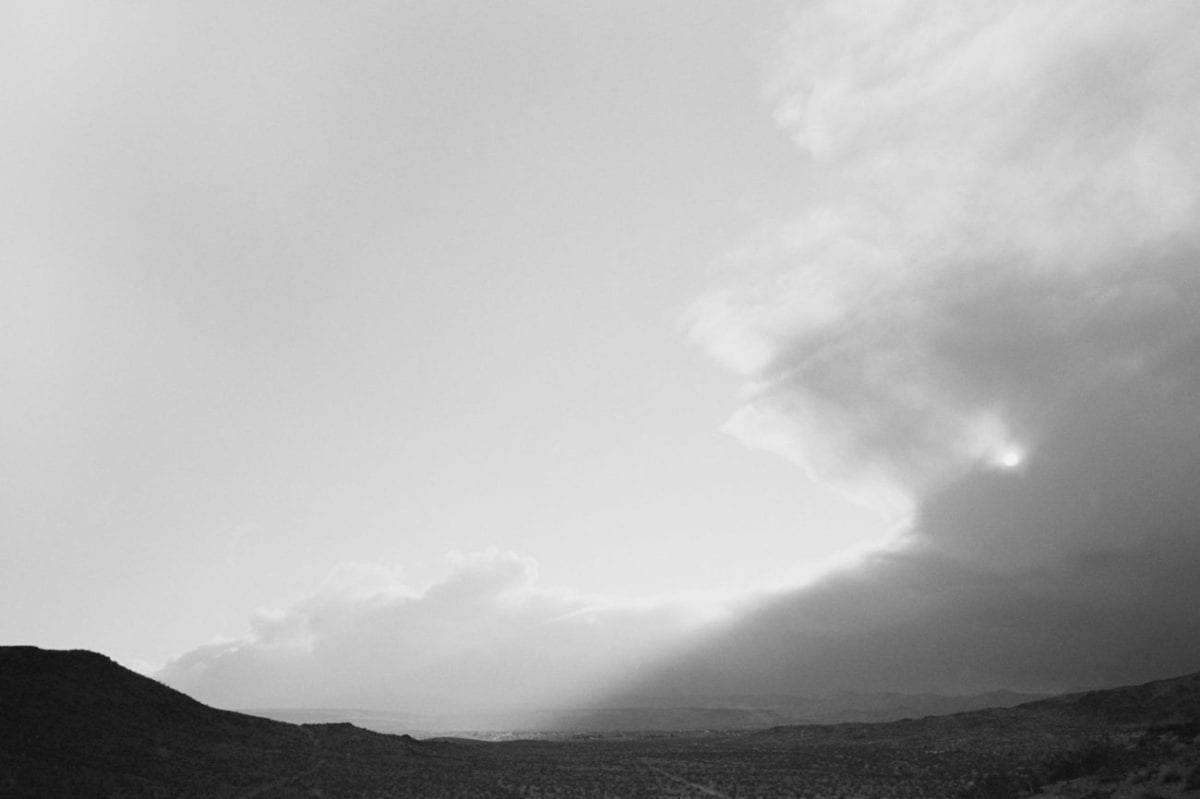
"Usually I am most happy when in the process of travelling, regardless of the location. I do always find the desert a compelling place to spend time and produce new work."
Your music is highly evocative and doesn’t fail at summoning buried memories / uncanny pictures. Are you a visual kind of person? Does the process of composing imply seeing images/ colours, or is it pure sound to you?
I’m also a visual artist and basically all of my formal education was in studio practice for fine arts, so it’s a language and a world that is very much a part of everything I do. At this moment I’m exploring the idea of creating a small video piece or several pieces to accompany the next release and further integrate the music to a visual narrative.
Where do you like to withdraw from civilization? What’s your haven?
Usually I am most happy when in the process of travelling, regardless of the location. I do always find the desert a compelling place to spend time and produce new work.
How’s your summer schedule looking right now?
Right now I am fortunate to have most of the summer open, so I’m planning on writing what will be the new record for Denovali and have that prepared for recording in the studio by the beginning of fall. That process will likely involve travelling for purposes of field recording and generating the photography and video for the artwork.
I’m also doing a large batch of negative scanning from a series of photos I’ve been taking over the past few years in preparation for a book that will hopefully see a release sometime late this year or early in 2018.
Discover more about Michael Vallera on Inverted Audio.
Michael ValleraDenovali RecordsOpal TapesAmbientElectronic